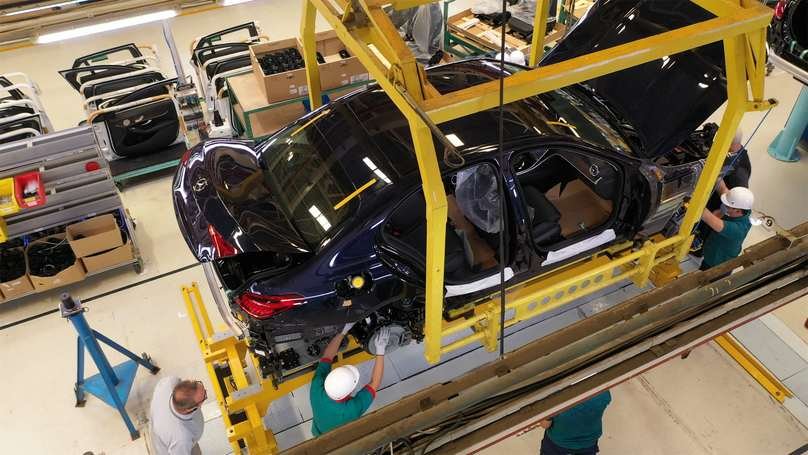Hanoi, December 11, 2024 – Vietnam continues to gain traction as a key destination for supply chain diversification, according to the German Business Association (AHK). In a recent report, the AHK emphasized Vietnam’s growing appeal for companies seeking to mitigate risks and reduce dependence on traditional manufacturing hubs.
A Strategic Location and Competitive Advantage
Vietnam’s geographical position in Southeast Asia, coupled with its robust trade agreements and improving infrastructure, has made it an attractive alternative for global companies. The country’s ability to offer cost-effective manufacturing solutions, skilled labor, and political stability further enhances its desirability.
“The global economic landscape is shifting, and Vietnam is emerging as a safe and reliable choice for businesses seeking to restructure their supply chains,” said an AHK representative.
Key Industries Driving Growth
Several sectors are benefiting from Vietnam’s rise as a manufacturing hub:
Electronics and Technology: Companies like Samsung and LG have expanded their production bases in Vietnam, leveraging the country’s skilled workforce and export-friendly policies.
Textiles and Garments: Vietnam remains one of the world’s leading exporters of apparel, driven by competitive labor costs and modernized factories.
Automotive and Machinery: Increasing investment in high-tech manufacturing has positioned Vietnam as a growing player in the automotive supply chain.
Challenges and Opportunities
While Vietnam’s ascent is impressive, it is not without challenges. Key issues include:
Infrastructure Limitations: Despite improvements, certain regions still face bottlenecks in transportation and logistics.
Environmental Concerns: As manufacturing scales up, Vietnam must balance industrial growth with sustainability goals.
Skill Development: Continued investment in education and vocational training will be critical to meet the demands of high-tech industries.
Nevertheless, the government’s proactive approach to addressing these challenges is winning praise from international investors. Initiatives to enhance digital transformation, streamline customs processes, and attract foreign direct investment are all contributing to Vietnam’s growing appeal.
Germany’s Role in Vietnam’s Growth
Germany has emerged as a significant partner in Vietnam’s development, with bilateral trade reaching record levels. German companies are increasingly investing in Vietnam, particularly in sectors such as renewable energy, machinery, and consumer goods. The AHK noted that Vietnam’s integration into the EU-Vietnam Free Trade Agreement (EVFTA) has further strengthened these ties, reducing tariffs and creating new opportunities for collaboration.
The Future of Supply Chains
As global supply chains continue to adapt to geopolitical tensions and economic uncertainties, Vietnam’s role is set to expand. Analysts predict that the country will solidify its position as a central node in the Indo-Pacific region, providing an alternative to traditional hubs like China and India.
Lessons in Resilience and Adaptation
Vietnam’s story is one of resilience and strategic foresight. By positioning itself as a reliable partner for global businesses, the nation exemplifies the principles of adaptability and vision. In Machiavelli’s words, “The prince who builds on the foundation of others builds in the air.” Vietnam has understood this lesson, crafting its own path and ensuring that its fortunes rest on solid ground.
As the world watches, Vietnam’s ascent in the global supply chain serves as a powerful reminder: the future belongs to those who anticipate change and act decisively.







